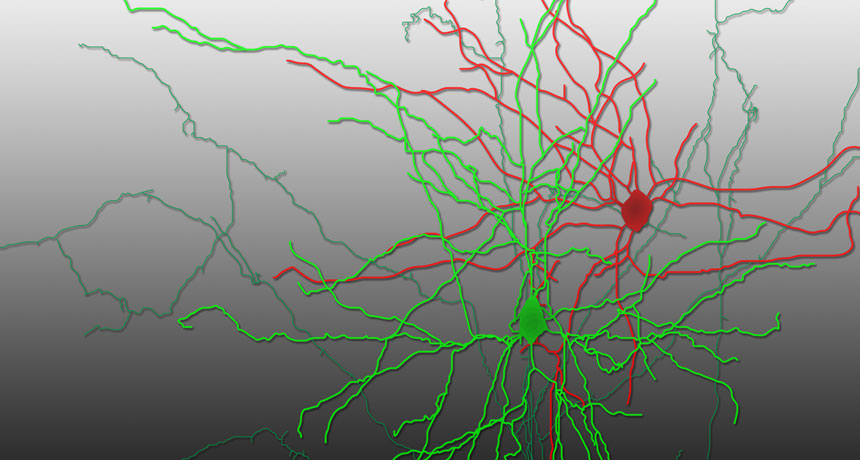Questions for ‘New light on brain science’

The brain contains many different types of nerve cells. These brain cells are separated by small gaps, called synapses.
Aurélie Pala and Carl Petersen, EPFL, Swiss Federal Institute of Technology.

The brain contains many different types of nerve cells. These brain cells are separated by small gaps, called synapses.
Aurélie Pala and Carl Petersen, EPFL, Swiss Federal Institute of Technology.
Register to access:
An error occurred. Please try again.
Already Registered? Enter your e-mail address above.